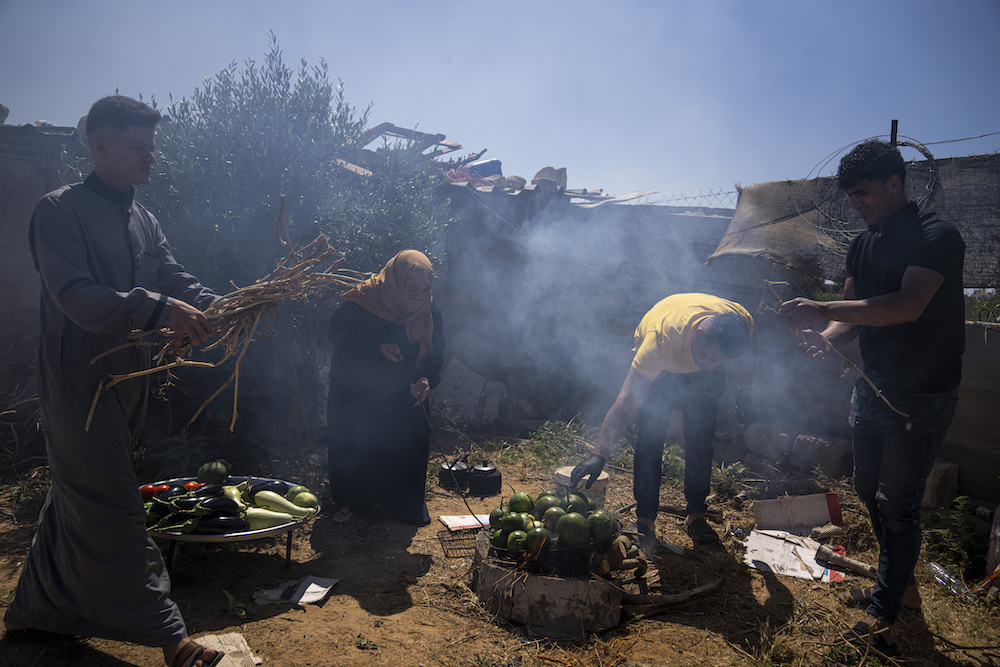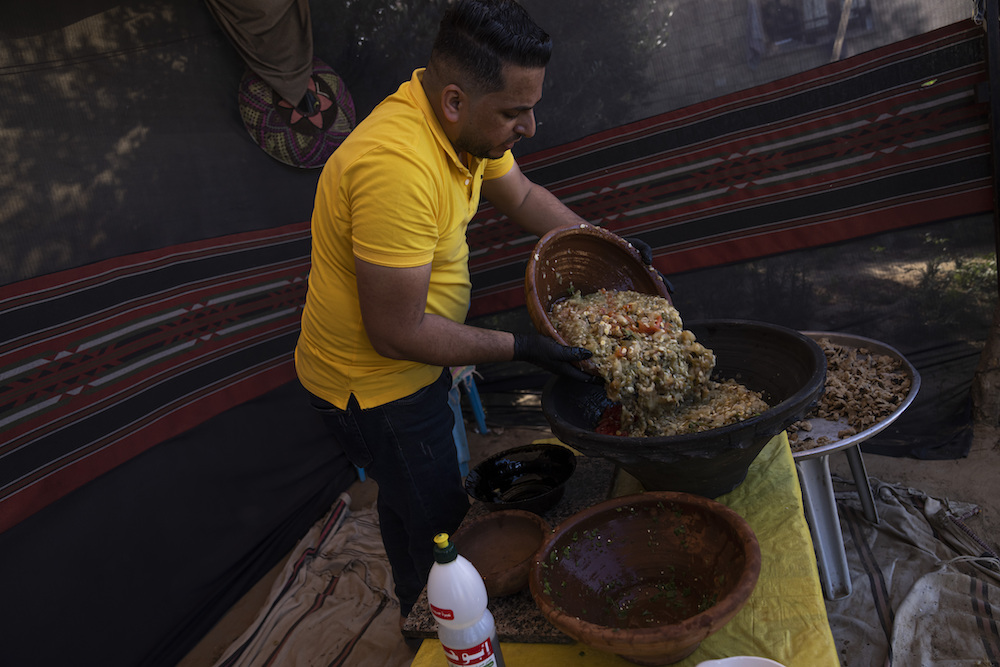KHUZAA: Locals call it “watermelon salad.” But this delicacy popular in the southern Gaza Strip at this time of year is far from the sweet, refreshing taste the name evokes.
“Lasima,” “Ajar,” or “Qursa” are different names for the hot, savory meal that takes hours to prepare. There’s watermelon inside, but one can hardly taste it.
In a territory that prides itself on its culinary traditions, Lasima is surprisingly divisive. Residents in southern Gaza love the dish. Just a few kilometers (miles) to the north, people shun it as unclean, due to its hands-on preparation.
Lasima is available just two months a year. It is made with melons that are picked when they are small and not yet ripe. They are roasted on a fire and peeled, and the soft flesh is mixed with roasted eggplants and thinly sliced tomatoes, lemon, garlic, onion and olive oil. Then it is eaten with a special dough baked in the ashes of the fire.

The name “Ajar,” or “unripe” in Arabic, refers to the baby melons. “Qursa” is the word for the thick dough. “Lasima,” which means “messy,” refers to the sloppy meal served in a large clay bowl.
Many say the dish originated more than 100 years ago with Bedouin Arab tribes in the neighboring Sinai desert in Egypt.
Others claim it’s a traditional Palestinian food. There is little evidence to support this claim, however. The food is popular only in southern Gaza, near the Sinai border. Farther north, the meal is barely known.
Amona Abu Rjila, 70, of Khuzaa, says it’s a little of each. She says she remembers her parents and grandfathers making it outdoors in the watermelon season. “It’s a traditional Palestinian dish with Bedouin roots,” she said.
Farther north, few would agree with her. Those familiar with the dish object to its preparation, with the ingredients typically mushed together with bare hands, as unclean.
On a recent day, a group of friends gathered in a yard adjacent to Israel’s frontier with Gaza. They diced the vegetables and roasted the ingredients in a fire. When the flames faded and the vegetables were charred, the thick dough was buried in the ash.
Abdelkarim Al-Satari, 33, a jobless accountant, started mixing the Lasima. He shredded the dough and put all the ingredients in the large bowl, squeezing everything with his fist. Wary of the onlookers, he put on black cooking gloves.
“In every season, people call me to make Lasima for them about 20 times,” he said.

To challenge the dish’s negative image, social media content creator Mohammed Aborjela brought the meal in smaller clay pots and offered samples to random passers-by in Gaza City.
Most of the respondents in a nearly two-minute video said they’d never heard of it, but all who tried it liked it.
The video attracted over 1,000 comments — many of them baffled northerners who were intrigued about the taste but turned off by the preparation methods.
“The way it’s made, especially by some men, is not appealing for the eyes,” said Nada Azzam, a Gaza City woman.
She said she has never tried Lasima. But after watching a video of women making it with “clean cooking means,” she vowed to give it a taste.














